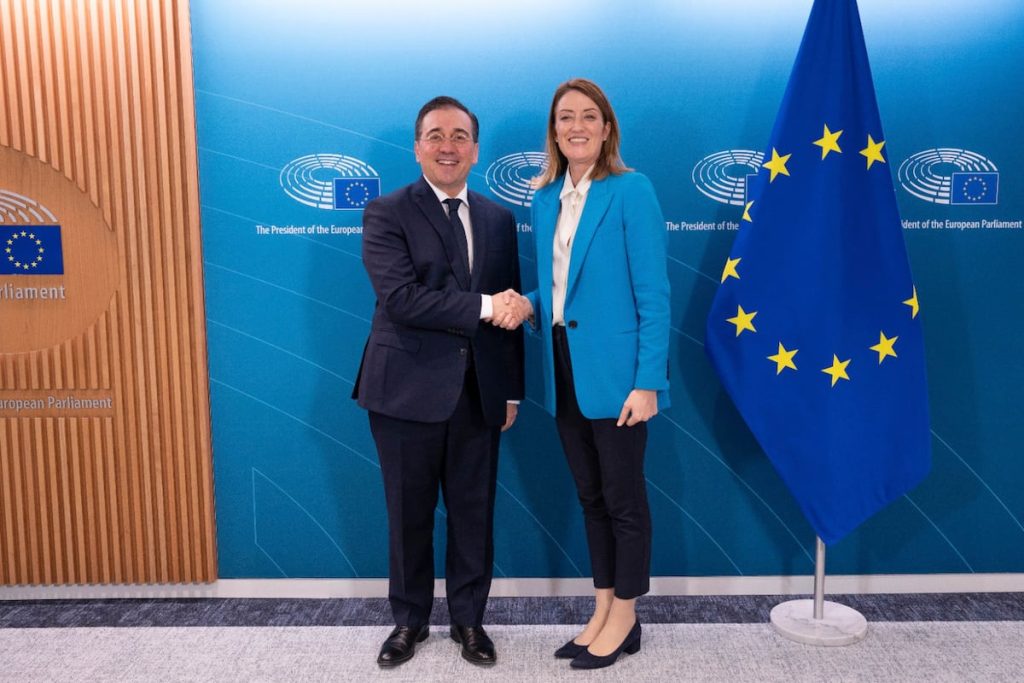Spain is seeking a way to reactivate the official status of Catalan, Galician, and Basque in the EU after a year largely stuck in a deadlock. Foreign Minister José Manuel Albares has accelerated diplomatic efforts in December on two fronts to push for a key demand from Junts, one of its uncomfortable but necessary partners to move forward with key projects such as the State Budget. Spain is working to include the three languages in the Union’s language regime regulation, requiring unanimity from the 27 member states. While Spain has emphasized that this is not a political matter but one of national identity, it acknowledges that it will take time to explain the Spanish position to others in the EU.
Spain used its six-month EU presidency last year to put forward a proposal to make Catalan, Basque, and Galician official languages of the EU, a request made by Junts. While this has been successful in the past with Irish becoming the 24th official EU language in 2005, Spain has faced challenges in getting approval for its co-official languages. Spain has secured agreements with various EU institutions for the use of one of its co-official languages, but the European Parliament, led by the Popular Party, has consistently blocked attempts. Despite concerns from some member states, Spain is committed to explaining the proposal further and has offered to cover the costs associated with the change, estimated at 132 million euros annually.
Belgium and Hungary, the current and previous holders of the EU presidency, have shown little interest in advancing Spain’s proposal. Hungary, which assumed the presidency after Belgium, has not made any attempts to revive the Spanish demand. Diplomatic circles have displayed relief when Belgium avoided addressing the issue, as it is not a major concern for other EU members. Junts, however, is losing patience as they feel that the Spanish government, particularly Prime Minister Pedro Sánchez, has not been actively engaged in promoting the recognition of Catalan. The lack of progress is also evident in the European Parliament, where President Roberta Metsola has not made significant efforts to move the issue forward.
Albares has met with Metsola multiple times to discuss the matter, with the Maltese president requesting further analysis on the implications of using the co-official languages in plenary sessions. A working group within the Parliament will present a report on legal and logistical implications and potential similar cases in Europe. However, there is no timeline for when the report will be completed, indicating a slow process for any potential advancement. The road ahead remains uncertain, as efforts to gain support for the inclusion of Catalan, Basque, and Galician as official languages in the EU face challenges from various member states and internal resistance within the European Parliament.
Spain’s persistence in pushing for official status of its co-official languages reflects a broader issue of recognizing linguistic diversity within the EU. While some member states may be hesitant to open this door, Spain argues that its proposal is tailored specifically to its national situation and will not fuel nationalist or linguistic impulses in other countries. As Spain continues to navigate diplomatic channels and engage with EU partners, the outcome remains unclear but underscores the importance of language and cultural identity in the European project. The discussions and negotiations surrounding the recognition of Catalan, Basque, and Galician as official languages in the EU are ongoing, highlighting the complexity and sensitivity of linguistic diversity within the European Union.















